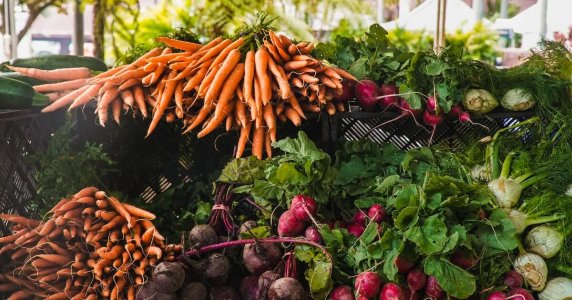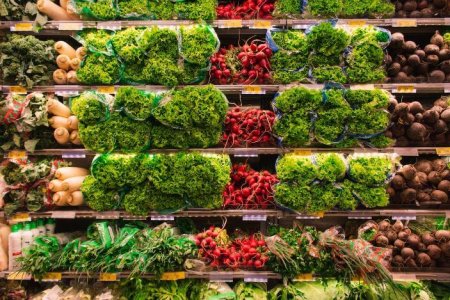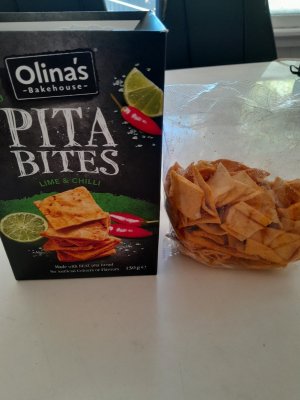Huge price hike! Coles and Woolworths food prices skyrocket by 10%, rising fast than inflation
- Replies 17
As many already know all too well, it's vital to watch our spending in today's tight economy, particularly when it comes to groceries.
Therefore, when news broke that food prices at Australia's supermarket giants, Coles and Woolworths, surged by a shocking 9.6 per cent in April, it left many understandably worried about their wallets.
A recent report from investment bank UBS discovered that common grocery items such as Vegemite, peanut butter, and yoghurt had experienced particularly stark price hikes compared to the overall inflation rate of 7 per cent.
This analysis of more than 60,000 items in supermarkets also found that fresh food costs skyrocketed by 9.9 per cent, which significantly contributed to the overall increase in prices. However, UBS predicted that this would drop in the coming months as supply levels improve.
These results sparked fear among many across the country, with some saying that there was ‘no relief in sight’ for Australians struggling with rising food costs and other cost-of-living expenses.
However, Coles disputes the accuracy of the UBS report. A spokesperson for the supermarket claimed that the report does not accurately reflect the full range of products sold by Coles or take into account changes in customer buying behaviours, which impacts their sales volumes and product mix.
‘This is integral to capturing an accurate reflection of overall supermarket inflation. UBS used the same price tracker for a report ahead of the third quarter 2023 results and reported Coles’ inflation at 9 per cent,’ the spokesperson explained.
‘Our official inflation figure was reported to be significantly lower at 6.2 per cent,’ they continued.
On the other hand, Woolworths acknowledged that their customers are feeling the pinch of rising food prices and assured customers that they are committed to helping them save on their shopping.
A spokesperson for the supermarket giant pointed out that Woolies offers weekly specials, seasonal price drops, low-cost own-brand products, and Everyday Rewards to help customers stretch their budgets.
‘In our last quarterly results, we saw that value-conscious customers are becoming more thoughtful about their discretionary spend, trading into more affordable options such as our own brands and looking for additional ways to save in-store or through our digital, rewards and e-commerce platforms,’ the spokesperson claimed.
The UBS analysis disclosed that Australians might be experiencing 'materially high food inflation,' with breakfast staples like dairy goods and spreads experiencing significant price hikes of 13 per cent in the past year.
Unfortunately, dry goods were up by 9.4 per cent. Some mealtime favourites have also seen marked price increases, such as Vegemite rising by 8 per cent, Bega peanut butter by 9 per cent, and certain yoghurts by 12 per cent.
Supply chain pressures and high labour costs may keep dry grocery inflation elevated into 2023, the report warned. However, the frequency of price rises may decrease as the situation stabilises.
In the meantime, many Australians are turning to supermarkets' private-label products to mitigate the rising cost of living pressures.
There is a silver lining, though: meat prices have been relatively stable, with chicken prices – which increased by 10 per cent in the past year – dropping by 1 per cent in the past few months. It was also revealed that pork was becoming 4 per cent cheaper.
This data might provide some relief to shoppers who rely on these proteins for their weekly meals.
UBS analyst Shaun Cousins also described the rising rate of food inflation as a ‘surprise’ and attributed the increase to supply chain and labour costs.
‘While monthly pricing data is volatile, especially fresh, given supply variability, it is valuable given the current period of materially high food inflation. The increasing rate of food inflation is a surprise and inconsistent with the declines reported by Coles and Woolworths in the third quarter,’ he said.
The report found Coles is now ahead of Woolworths, with its inflation up 10.5 per cent in April against 9.1 per cent in March. Meanwhile, Woolworths’ food inflation registered an 8.7 per cent growth in April and 9.7 per cent in March.
While the UBS report highlights several alarming statistics, it is crucial for us to stay informed about these market trends so we can make informed decisions about our shopping and budgets, especially in the face of such rising costs.
 Do you have any other tips for keeping on top of rising food prices? Do you think Coles and Woolworths need to do more to make sure inflation isn’t passed onto customers like us? Share your advice in the comments below!
Do you have any other tips for keeping on top of rising food prices? Do you think Coles and Woolworths need to do more to make sure inflation isn’t passed onto customers like us? Share your advice in the comments below!
Therefore, when news broke that food prices at Australia's supermarket giants, Coles and Woolworths, surged by a shocking 9.6 per cent in April, it left many understandably worried about their wallets.
A recent report from investment bank UBS discovered that common grocery items such as Vegemite, peanut butter, and yoghurt had experienced particularly stark price hikes compared to the overall inflation rate of 7 per cent.
This analysis of more than 60,000 items in supermarkets also found that fresh food costs skyrocketed by 9.9 per cent, which significantly contributed to the overall increase in prices. However, UBS predicted that this would drop in the coming months as supply levels improve.
These results sparked fear among many across the country, with some saying that there was ‘no relief in sight’ for Australians struggling with rising food costs and other cost-of-living expenses.
However, Coles disputes the accuracy of the UBS report. A spokesperson for the supermarket claimed that the report does not accurately reflect the full range of products sold by Coles or take into account changes in customer buying behaviours, which impacts their sales volumes and product mix.
‘This is integral to capturing an accurate reflection of overall supermarket inflation. UBS used the same price tracker for a report ahead of the third quarter 2023 results and reported Coles’ inflation at 9 per cent,’ the spokesperson explained.
‘Our official inflation figure was reported to be significantly lower at 6.2 per cent,’ they continued.
On the other hand, Woolworths acknowledged that their customers are feeling the pinch of rising food prices and assured customers that they are committed to helping them save on their shopping.
A spokesperson for the supermarket giant pointed out that Woolies offers weekly specials, seasonal price drops, low-cost own-brand products, and Everyday Rewards to help customers stretch their budgets.
‘In our last quarterly results, we saw that value-conscious customers are becoming more thoughtful about their discretionary spend, trading into more affordable options such as our own brands and looking for additional ways to save in-store or through our digital, rewards and e-commerce platforms,’ the spokesperson claimed.
The UBS analysis disclosed that Australians might be experiencing 'materially high food inflation,' with breakfast staples like dairy goods and spreads experiencing significant price hikes of 13 per cent in the past year.
Unfortunately, dry goods were up by 9.4 per cent. Some mealtime favourites have also seen marked price increases, such as Vegemite rising by 8 per cent, Bega peanut butter by 9 per cent, and certain yoghurts by 12 per cent.
Supply chain pressures and high labour costs may keep dry grocery inflation elevated into 2023, the report warned. However, the frequency of price rises may decrease as the situation stabilises.
In the meantime, many Australians are turning to supermarkets' private-label products to mitigate the rising cost of living pressures.
There is a silver lining, though: meat prices have been relatively stable, with chicken prices – which increased by 10 per cent in the past year – dropping by 1 per cent in the past few months. It was also revealed that pork was becoming 4 per cent cheaper.
This data might provide some relief to shoppers who rely on these proteins for their weekly meals.
UBS analyst Shaun Cousins also described the rising rate of food inflation as a ‘surprise’ and attributed the increase to supply chain and labour costs.
‘While monthly pricing data is volatile, especially fresh, given supply variability, it is valuable given the current period of materially high food inflation. The increasing rate of food inflation is a surprise and inconsistent with the declines reported by Coles and Woolworths in the third quarter,’ he said.
The report found Coles is now ahead of Woolworths, with its inflation up 10.5 per cent in April against 9.1 per cent in March. Meanwhile, Woolworths’ food inflation registered an 8.7 per cent growth in April and 9.7 per cent in March.
While the UBS report highlights several alarming statistics, it is crucial for us to stay informed about these market trends so we can make informed decisions about our shopping and budgets, especially in the face of such rising costs.
Key Takeaways
- Food and grocery prices at Australia's two supermarket giants, Woolworths and Coles, have surged by 9.6 per cent in April.
- Coles disputes the findings of the report by investment bank UBS, which analysed over 60,000 items at the supermarkets.
- Fresh food, in particular, contributed to the huge increase in prices as costs skyrocketed by 9.9 per cent.
- UBS analysts warn that Australia is facing 'materially high food inflation,' with breakfast staples, dairy goods, and spreads climbing by 13 per cent in the past year.










